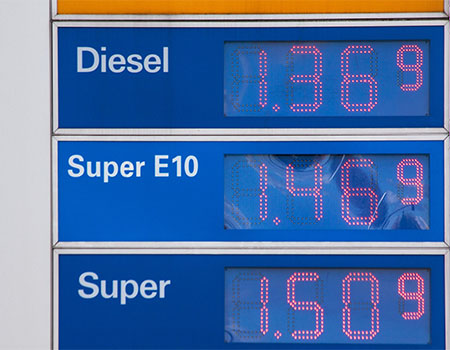
In recent years, motorists in the United Kingdom have been feeling the pinch at the pump as petrol prices continue to rise. The question on everyone’s mind is, “Why are the fuel prices in the UK so high?”
In this article, we’ll delve deep into the factors contributing to these high fuel costs. From global influences to local policies, we’ll explore the dynamics behind this issue, providing valuable insights for both consumers and policymakers.
Why are Fuel Prices so High?
The UK petrol price has reached unprecedented levels, leaving many wondering about the causes. Let’s examine the key factors contributing to this situation.
Global Oil Market
The global oil market plays a significant role in dictating fuel prices in the UK. Fluctuations in crude oil prices due to geopolitical tensions, supply disruptions, or changes in demand can have a direct impact on what consumers pay at the pump.
Exchange Rates
Exchange rates also come into play. Since oil is typically traded in US dollars, changes in the pound-to-dollar exchange rate can influence fuel prices. A weaker pound can result in higher fuel costs.
Fuel Taxation
One of the most contentious aspects of fuel pricing in the UK is taxation. The government levies both a fuel duty and Value Added Tax (VAT) on fuel. These taxes can account for a significant portion of the price consumers pay.
Supply Chain Costs
The logistics of getting fuel from refineries to local petrol stations involve transportation and distribution costs. Any disruptions or price hikes in these processes can affect fuel prices.

Environmental Regulations
The UK’s commitment to reducing carbon emissions has led to the inclusion of biofuels and cleaner alternatives in the fuel mix. These alternatives can be more expensive to produce, impacting prices.
Consumer Demand
High demand for fuel, especially during peak travel times, can drive prices up. The law of supply and demand is very much in play in the fuel market.
Regional Disparities
Fuel prices can vary significantly across regions in the UK. Remote areas often face higher prices due to transportation costs and lower demand.
Competition Among Retailers
Competition among fuel retailers can also impact prices. Areas with more petrol stations often see more competitive pricing.
Frequently Asked Questions (FAQs)
Q: Can I save money on fuel in the UK?
A: Yes, you can save money by shopping around for the best fuel prices, using loyalty cards, and considering fuel-efficient driving habits.
Q: Are there any government initiatives to reduce fuel prices?
A: The government periodically reviews fuel duty rates, but significant reductions are rare due to the revenue generated from fuel taxes.
Q: How do I find the cheapest fuel prices in my area?
A: Numerous apps and websites provide real-time information on fuel prices in your vicinity, helping you find the best deals.
Q: Does driving style affect fuel consumption?
A: Yes, aggressive driving habits like rapid acceleration and excessive speeding can significantly increase fuel consumption.
Q: Are electric vehicles a cheaper alternative to petrol or diesel cars?
A: Electric vehicles can be cheaper to run in the long term, as electricity is generally less expensive than petrol or diesel fuel prices.
Q: What’s the outlook for future fuel prices in the UK?
A: The future of fuel prices is uncertain, as it depends on a multitude of factors, including global oil markets and government policies.

In recent years, motorists in the United Kingdom have been feeling the pinch at the pump as petrol prices continue to rise. The question on everyone’s mind is, “Why are the fuel prices in the UK so high?”
In this article, we’ll delve deep into the factors contributing to these high fuel costs. From global influences to local policies, we’ll explore the dynamics behind this issue, providing valuable insights for both consumers and policymakers.